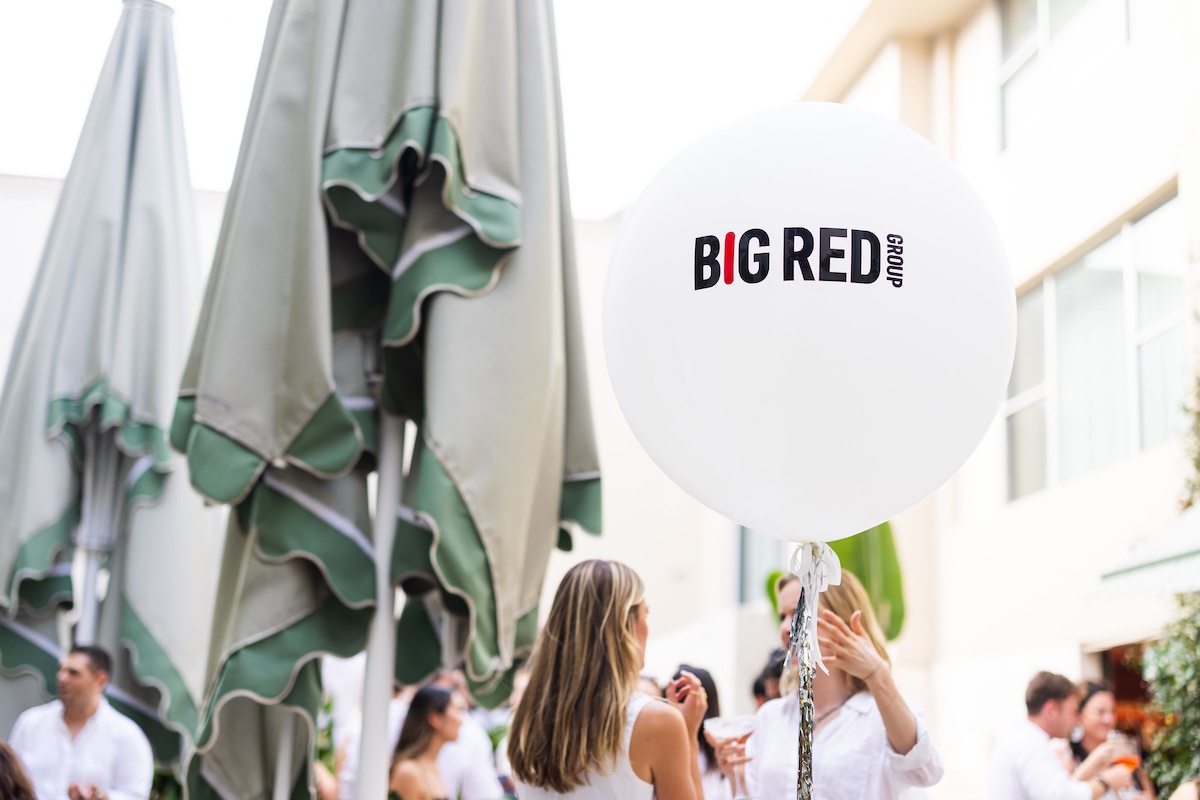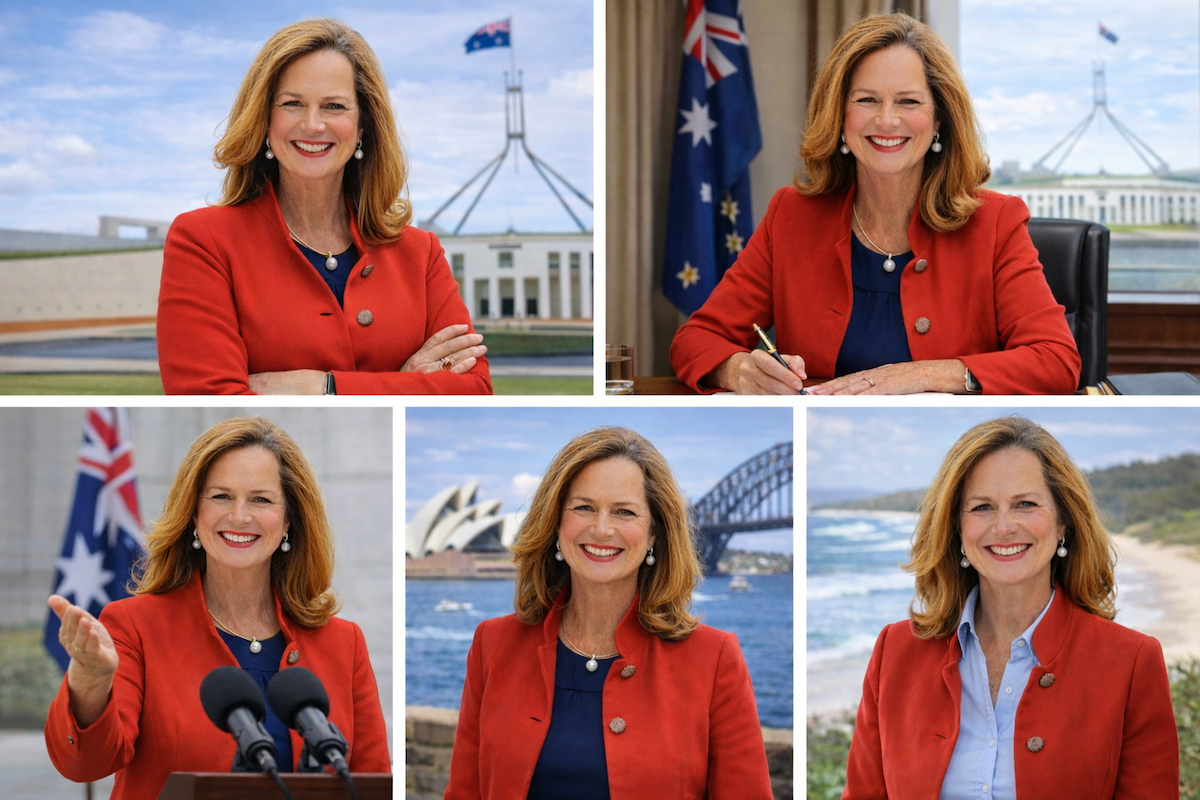More Than a Trophy: Building a Winning Culture
I want you to picture the scene. It’s the end of the year, and you’re at your company awards night. The MC is on stage, reading from a script. A name is called, there’s a polite round of applause, and someone is handed a heavy glass trophy and a gift voucher. A quick, slightly awkward photo is taken. The moment passes. The next day, the trophy finds a home on a desk, and the voucher is spent. And then... what?
Did that moment truly inspire anyone? Did it clarify what excellence looks like in your organisation? Did it create a lasting emotional connection to the company's mission? Or was it just a nice, expensive, and ultimately forgettable piece of corporate theatre?

After four decades of building and leading teams, from the massive corporate structures of IBM and Apple to the all-in, heart-and-soul culture we built at RedBalloon, I have seen this scene play out hundreds of times. And I have come to believe that most companies are profoundly underutilising one of their most powerful culture-shaping tools.
Professional employee awards are not just about rewarding past performance; they are about broadcasting a powerful message to your entire organisation about what you value for the future. An award is not a transaction. It is a story. It is a public declaration of "This is what greatness looks like here."
When done poorly, awards programs can feel like a box-ticking exercise, or worse, a source of cynicism and a breeding ground for feelings of favouritism. But when designed with intention, with strategy, and with a deep sense of humanity, a great awards program can become the very engine of your culture. It can be the system that turns your company values from words on a wall into lived, celebrated behaviours.
So, let's move beyond the trophy. This is my definitive, from-the-trenches guide to designing an employee awards program that builds a truly magnetic, high-performance culture.
The 'Why' - Redefining the Strategic Purpose of Employee Awards

Before you even think about the categories or the prizes, you must answer the most important question of all: Why are we doing this?
If your answer is "because we're supposed to" or "to make people feel good," you are starting from a weak foundation. A great awards program is a strategic business tool, and its purpose must be directly linked to your company's most important goals.
1. Awards as a Culture-Shaping Tool:
Your culture is the sum of the behaviours you tolerate and the behaviours you celebrate. An awards program is your most visible and powerful platform for celebration. It is your chance to shine a spotlight on a specific person and say to the entire company, "This. This is what we value. This is who we are. We want to see more of this." Every award you give is a mini-masterclass for your team on how to succeed in your organisation.
2. Awards as a Storytelling Engine:
Facts and figures are forgotten. Stories are remembered. An award is a container for a powerful story. The act of presenting an award is not just about reading a name; it's about telling the story of why that person is on the stage. It’s about sharing the narrative of the challenge they overcame, the collaboration they fostered, or the innovative idea they brought to life. These stories become the modern-day legends of your company, passed down to new hires, shaping their understanding of your culture.
3. Awards as a Motivation Multiplier:
A well-designed awards program does more than just motivate the winner. When the criteria are clear and the process is seen as fair, it motivates everyone. It shows people that excellence is recognised and that their contributions matter. It creates a sense of healthy ambition and provides a clear picture of the path to success, inspiring others to strive for that same level of achievement.
An awards program is a key pillar in the much larger ecosystem of appreciation. It is the formal, capstone event that complements the daily, informal acts of gratitude. As I explored in my broader guide to employee recognition programs in Australia, these formal awards must be supported by a culture of consistent, everyday recognition to be truly effective.
The Anatomy of a Great Awards Program - The Four Core Categories

A robust and balanced awards program shouldn't just focus on one type of achievement. It should celebrate the full spectrum of contributions that make a business successful. In my experience, a world-class program is built on these four distinct, but equally important, categories of awards.
1. Performance-Based Awards (Celebrating the "What")
This is the most traditional and most straightforward category. These awards celebrate tangible, measurable results. They are about honouring the what—the outcomes that directly drive the business forward.
- Examples: "Salesperson of the Year," "Top Performer - Customer Service," "Project of the Year," "Most Efficient Team."
- Why they matter: They create a clear link between effort and reward. They recognise and motivate your results-driven high achievers. They reinforce the importance of hitting targets and delivering on commercial commitments.
- The Trap to Avoid: If performance awards are the only awards you give, you risk creating a cut-throat, "win at all costs" culture. You might end up celebrating a "toxic high-performer"—someone who hits their numbers but leaves a trail of destruction in their wake. This is why you need the next category.
2. Value-Based Awards (Celebrating the "How")
This, for me, is the absolute heart and soul of a great awards program. These awards are not about the numbers on a spreadsheet; they are about the behaviours that embody your company's core values. They celebrate how the work was done.
- Examples: "The 'Customer Champion' Award" (for embodying your customer-centric value), "The 'We're a Team' Award" (for exceptional collaboration), "The 'Courage to Innovate' Award" (for taking a smart risk).
- Why they matter: This is how you make your values real. It is one thing to have your values written on a poster in the lunchroom; it is another thing entirely to see a team member publicly celebrated for living that value. It sends an unequivocal message to everyone: "This is how we behave here, and we take it just as seriously as our sales targets." At RedBalloon, our "Living the Values" awards were the most prestigious and sought-after form of recognition we had.
- The Key to Success: You must define your values in clear, observable behavioural terms. "Integrity" is a vague concept. "Did what they said they were going to do, even when it was difficult" is a specific, recognisable behaviour.
3. Peer-to-Peer Awards (Celebrating the "Who")

This is the ultimate antidote to the "favouritism trap." A peer-to-peer awards program empowers your entire team to identify and celebrate their own heroes. It shines a light on the quiet achievers, the collaborative linchpins, and the unsung heroes who might be missed by senior leadership.
- Examples: "The 'Always Happy to Help' Award," "The 'Mentor of the Year' Award," "The 'Makes My Day Better' Award."
- Why they matter: Recognition from a peer is often the most authentic and meaningful praise a person can receive. It builds a culture of gratitude and appreciation from the ground up. It proves that you trust your team to know what excellence looks like in their daily reality.
- How to do it: Use a simple nomination system. This could be a dedicated channel in your internal chat, a simple online form, or even a physical nomination box. The key is to make it easy and accessible for everyone to participate.
4. Innovation & Courage Awards (Celebrating the "What If")
The final category is about celebrating the behaviours that will secure your future. Most awards programs are backward-looking, celebrating past achievements. You must also create awards that are forward-looking, celebrating the behaviours that drive innovation and growth.
- Examples: "The 'Best Smart Failure' Award," "The 'Most Courageous Idea' Award," "The 'Process Improvement' Award."
- Why they matter: Innovation requires psychological safety. Your team will not take risks or suggest bold new ideas if they fear they will be punished for failing. Publicly celebrating a "smart failure"—a well-planned experiment that didn't work out but generated valuable learning—is one of the most powerful messages a leader can send. It says, "We value the courage to try more than we fear the possibility of failure."
- The Outcome: This fosters a culture of continuous improvement and ensures that your business is constantly evolving and adapting, which is the key to long-term survival and success.
Designing Your Program - A Practical, Step-by-Step Playbook
A great awards program is a well-designed product. It requires thought, planning, and a commitment to a great "user experience" for your team.
Step 1: Define Your "Why" and Align with Strategy
What are your company's top 1-3 strategic priorities for the next 12 months? Is it to improve customer retention? To launch a new product? To foster more cross-functional collaboration? Your awards categories should be a direct reflection of these goals. If improving customer service is your top priority, you should have a prominent award that celebrates excellence in that area.
Step 2: Create Clear, Transparent, and Fair Criteria
The integrity of your program depends on this. The process for nomination and judging must be clear, transparent, and seen as fair by everyone.
- Who is eligible to nominate? (Everyone!)
- What is the specific criteria for each award? (Use clear, behavioural examples).
- Who are the judges? (A diverse panel of leaders and peers is often best).
A process shrouded in secrecy will breed cynicism. A transparent process builds trust.
Step 3: Master the Art of the Ceremony (The Moment of Meaning)
The awards ceremony, whether it's a black-tie gala or a 15-minute segment in your all-hands meeting, is your stage. Do not waste it.
- Tell the Story: When you present an award, don't just read the person's name. Tell the specific story of why they won. Describe the situation, the action they took, and the positive impact it had. This is what makes the moment meaningful for the winner and educational for everyone else.
- Let the CEO Present: The most important awards should be presented by the most senior leader in the company. This signals the importance of the program to the entire organisation.
- Make it Personal: A heartfelt, personal story from a leader or a peer is infinitely more powerful than a slick, corporate video.
Step 4: Rethink the Reward (The Lasting Memory)
This brings me back to my core philosophy, the one that is the very foundation of RedBalloon. The reward itself is a powerful message. A cash bonus is a transaction. It's useful, but it's quickly spent and the emotional connection is fleeting. An experiential reward creates a story and a lasting memory.
When you reward your people with experiences, you are not just giving them a thing; you are giving them a new perspective, a chance to connect with a loved one, a thrilling adventure, or a moment of pure, unadulterated joy. You are investing in their life, not just their wallet.
- For the high-performing salesperson who has been on the road all year, don't give them a bonus; give them a luxurious weekend getaway with their partner to reconnect.
- For the innovative team that delivered a game-changing project, don't give them gift cards; give them a thrilling, shared adventure like a V8 Supercar driving experience or a celebratory hot air balloon ride at dawn.
- For the unsung hero who consistently supports everyone else, give them the gift of pure self-care with a rejuvenating day spa package.
These are the rewards that people will talk about for years. They become part of the mythology of your company, powerful stories of how your organisation truly cares for its people.

An Award is a Message to Your Future
In the end, a professional employee awards program is one of the most powerful and visible tools you have as a leader. It is a mirror that you hold up to your organisation, reflecting back what you truly value.
It is your chance to move beyond the numbers and celebrate the human behaviours that create a great and enduring business: the collaboration, the courage, the commitment to your customers, and the passion for your purpose.
Stop thinking of your awards program as an administrative task. Start seeing it for what it is: a strategic, culture-shaping, and deeply human act of leadership. Build a program that is not just a look back at a year of work, but a powerful message to your entire team about the kind of future you are all building, together.
What is one behaviour in your own team that you know deserves to be celebrated more?





